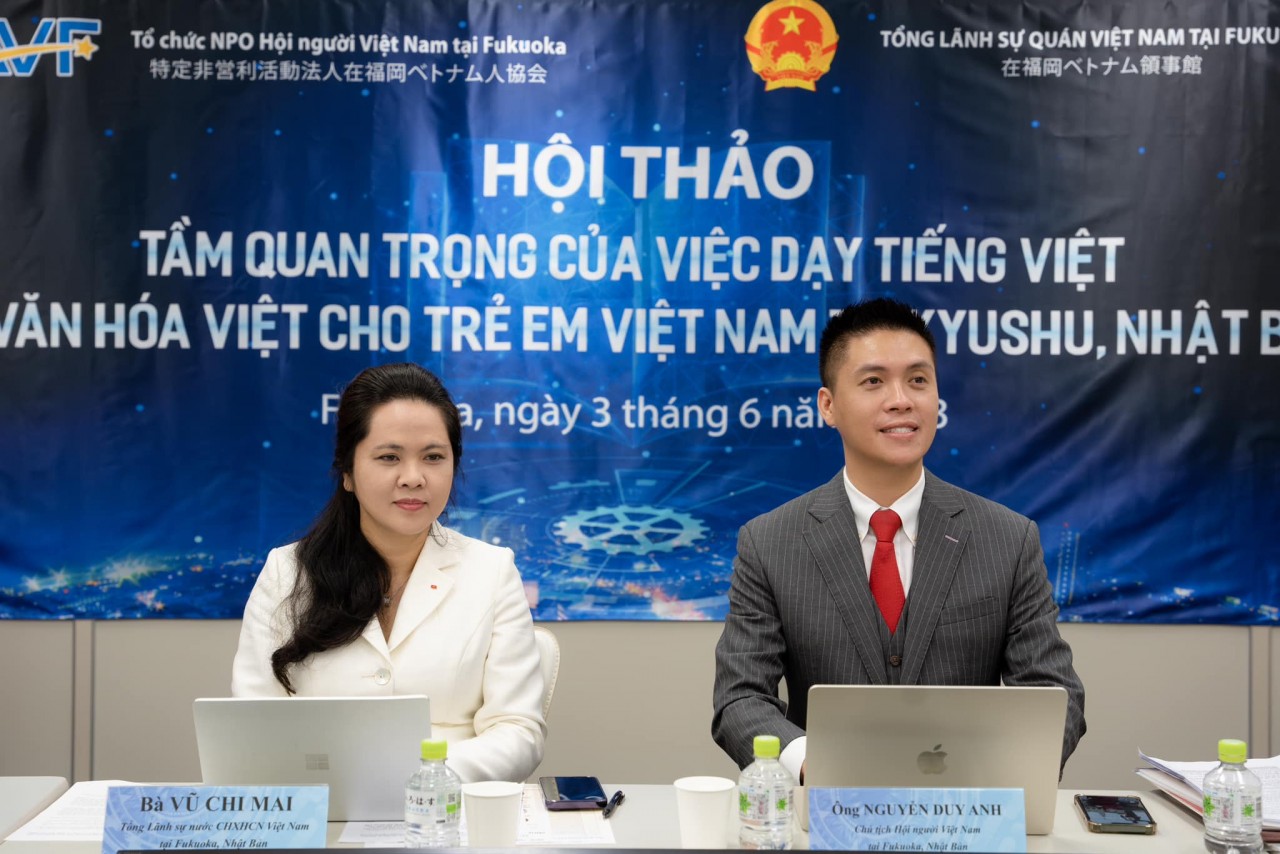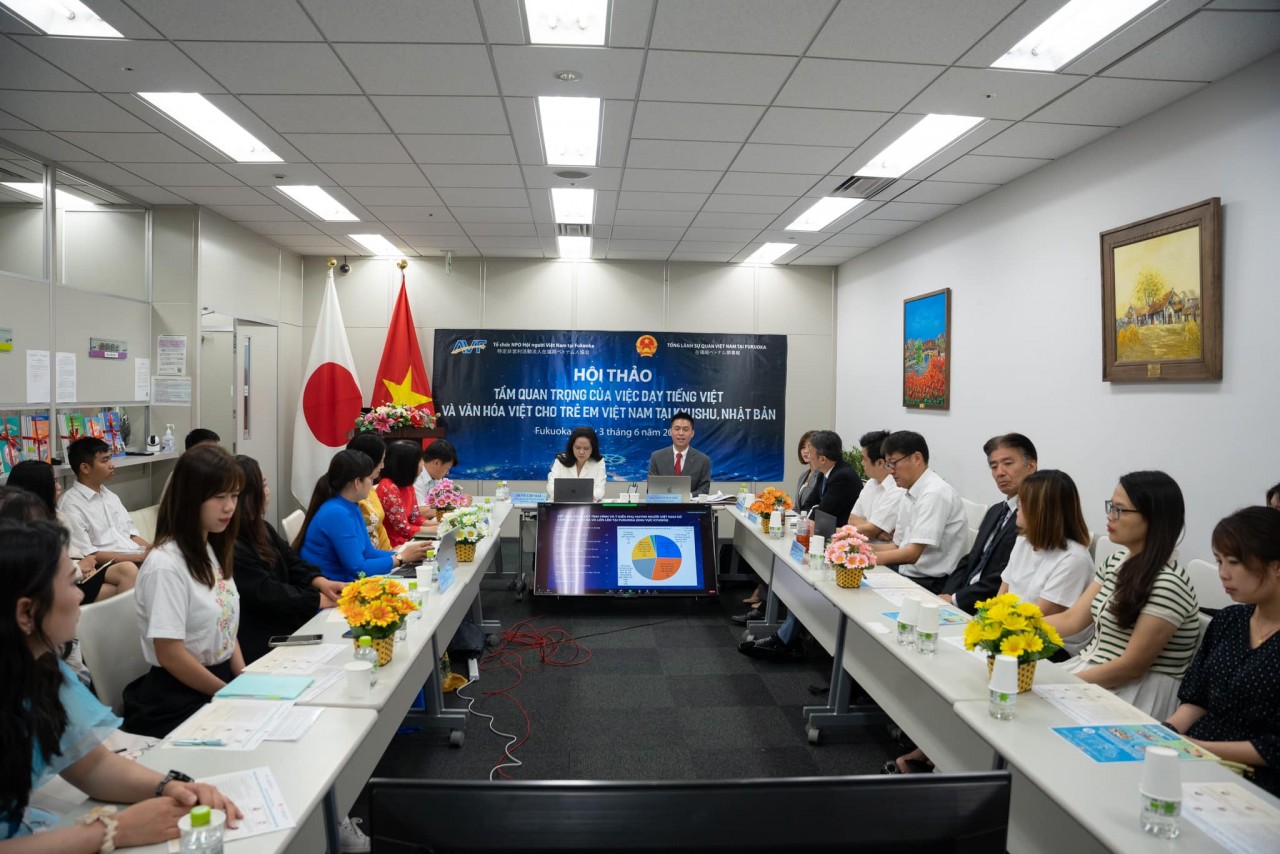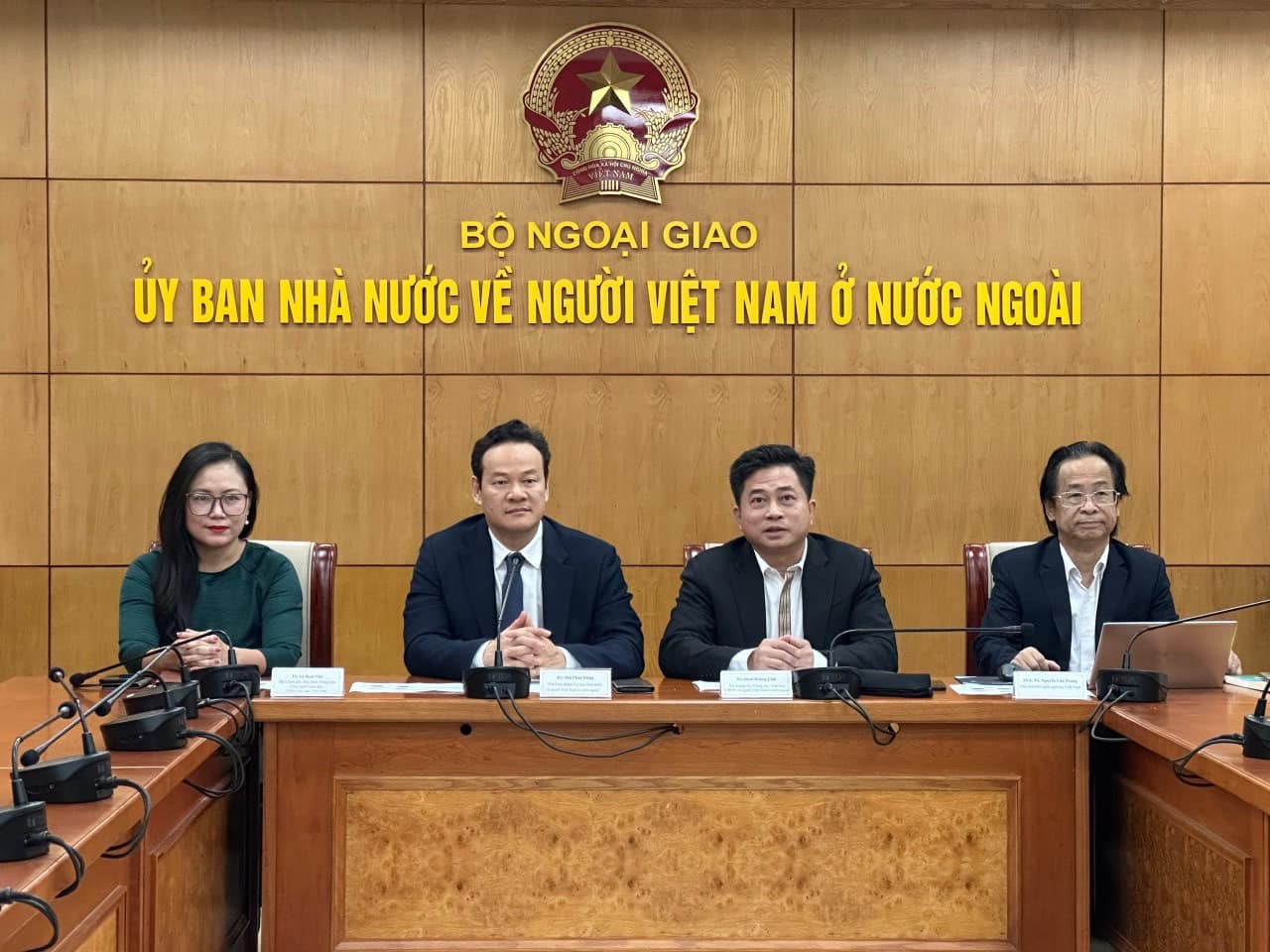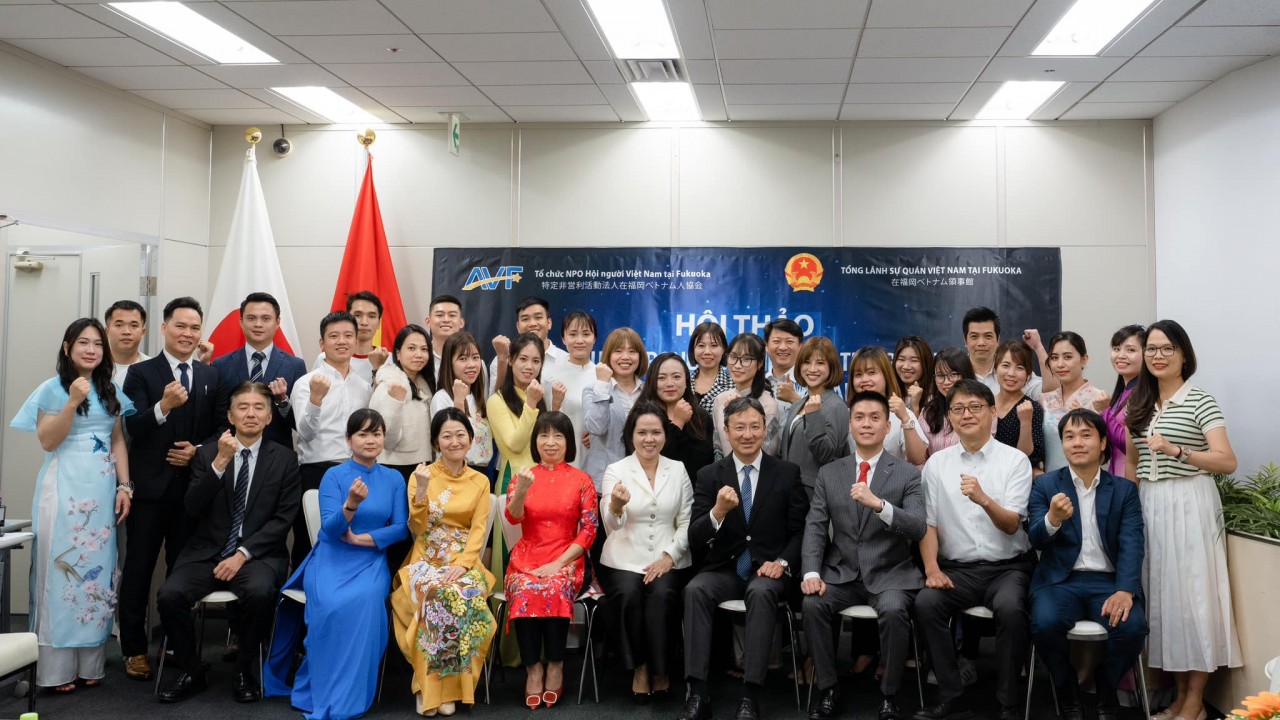 |
| Vu Chi Mai, consul general of Vietnam in Fukuoka and Nguyen Duy Anh, president of Vietnamese People Association in Fukuoka at the workshop on June 3. Photo: Truong Quan |
A workshop held in Japan’s Fukuoka Prefecture on June 3 focused on the importance of imparting the Vietnamese language and culture to Vietnamese children in Kyushu, the third largest island of the Northeast Asian nation, according to Vietnam News Agency (VNA) on Sunday. This event was a testament to the strong ties between the two countries.
Addressing more than 120 participants in the hybrid event, Vu Chi Mai, Consul General of Vietnam in Fukuoka, stated that the workshop was one of the activities carried out by the Consulate General under the Prime Minister-approved plan to honour the Vietnamese language in overseas Vietnamese (OV) communities from 2023 to 2030.
The Consulate General is taking steps to promote the Vietnamese language as part of their initiative to cultivate OV communities and preserve the Vietnamese culture. Moreover, they are aiming to make the language more popular. Promoting the language is also part of the Consulate General’s efforts to help develop OV communities and maintain and popularise the Vietnamese culture, she added.
She asserted that educating OV children in the Vietnamese language and culture would be immensely beneficial, fostering their patriotism, deepening their knowledge of their homeland and society, and strengthening their familial ties.
 |
| Participants in the workshop in Fukuoka prefecture on June 3. Photo: VNA |
Encouraging the use of the Vietnamese language among second and third-generation Vietnamese families in Japan can help the community to thrive and provide a valuable source of manpower for both countries, Mai noted.
Mai Phan Dung, the Vice Chairman of the State Committee for Overseas Vietnamese Affairs, stated that the Vietnamese diaspora in Japan and other countries have been demonstrating their sense of responsibility to the younger generation by organizing practical activities to promote and preserve the language of their homeland. These activities include the establishment of various Vietnamese language schools, classes and centers, like the Vietnamese schools/classes in Tokyo, Osaka and Saitama, as well as the Hoa Mai class in Kobe.
He lauded the introduction of a course providing instruction on how to impart the Vietnamese language and culture to Vietnamese children in Kyushu, expressing his desire that similar initiatives be implemented not only in Northeast Asia but across the globe.
 |
| Representatives of the State Committee for OV Affairs attend virtually from Hanoi. Photo: Truong Quan |
At the workshop, experts discussed various aspects of preserving and promoting Vietnamese language and culture in foreign countries. They shared their insights on the importance of passing down the language and culture to the next generation, the best methods of teaching it to those unfamiliar with it, and the challenges associated with doing so. Furthermore, they explored the potential contributions of technology and digital media in this endeavor. Ultimately, the experts concluded that collaboration between local and international communities was essential for ensuring the successful preservation and promotion of Vietnamese language and culture abroad.
Dr. Kondo Mika, a professor in the Faculty of Foreign Languages at Osaka University specializing in Vietnamese, recently gave a lecture on the topic of “Preserving language and culture for children of Vietnamese descent, particularly on ways to ensure learning opportunities for Vietnamese language and culture in Japanese schools.”
Assoc. Prof. Dr. Hoang Anh Thi, of Osaka University, discussed a classroom model for two groups of students who possess varying levels of fluency in Vietnamese, their mother tongue. Hua Ngoc Tan, from Dai Nam University, shared his experiences from Taiwan on “developing and structuring a Vietnamese language and culture curriculum for these two student groups.”
Meanwhile, Le Hoai Thu, Deputy Director in charge of the Center for Education Technology – Vietnam Education Publishing House, demonstrated some new points in the approach to teaching Vietnamese to Vietnamese children abroad in the Hello Vietnamese book and the introduction of the Hello Vietnamese program on VTV4. Additionally, Assoc. Prof. Dr. Nguyen Lan Trung analyzed guidelines for the Vietnamese language teaching curriculum and teaching methods.
 |
| Participants in the workshop in Fukuoka prefecture on June 3. Photo: VNA |
The Vietnamese People Association in Fukuoka has proudly unveiled a board devoted to the Vietnamese language to honor and preserve the language and culture within the local Overseas Vietnamese (OV) community. This momentous occasion marks a significant step towards celebrating and safeguarding the language and culture of the Vietnamese people in Fukuoka.
The Vietnamese expat population in Japan continues to be the second largest, with over 489,000 individuals currently living there. This number is an impressive testament to the strong relationship between the two countries, and the many opportunities that Japan offers to Vietnamese people.
Ancient house in Ma May
NDO – Ma May, a rare quarter that still retains several old houses, has created one of the characteristics of Hanoi. Hanoi’s streets are becoming increasingly crowded and traditional features can sometimes be hidden behind modern life. But if one takes the time to relax and look around, the ancient features begin to reveal themselves.
A Glimpse of Hanoi’s Old Quarter
Recently, the Management Board of Hanoi’s Old Quarter cooperated with the city of Toulouse to open an exhibition named “Ke cho – Pho co” (City Dwellers – Old Quarter) at Hanoi’s Old Quarter Cultural Exchange Centre to depict the formation and development of Hanoi’s Old Quarter in the past 1000 years.








